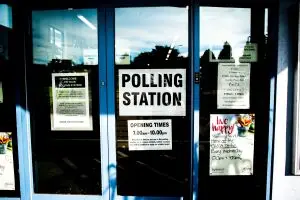The charities regulator, the Charity Commission, has commissioned and published research looking at the factors that the public associate with a trustworthy charity.
The report ‘Trust in Charities, 2018’ was commissioned as the Charity Commission has pledged to make charities some of the most trusted institutions in society. At present, the public now trust charities less than the average person on the street. [1]
The research, undertaken by the polling company Populus, shows that transparency, being true to their values, and the ability to demonstrate efficiency are three of the most important indicators of trustworthiness in a charity.
Populus found that an increased trust in charities indicates that an individual would donate more often.
The report also found people aged 18-24 are far more likely to trust charities than those aged 55 or over. Though promising that young people display more trust in charities, those aged 55 and over have a larger disposable income and are more likely to donate, so the Commission will want to help redress this imbalance.
Efficiency seems to be an issue for the third sector. The report states that charities ‘are most trusted to make a positive difference but are less trusted to ensure that a reasonable proportion of donations reach the intended beneficiaries’.
Baroness Stowell, the newly appointed Chair of the Charity Commission, commented on the findings:
‘This research shows that the public no longer give charities as institutions the benefit of the doubt in providing that value. What the public expect is not unreasonable: they want charities to be guided by their ethos and purpose in everything they do, and they want charities to use their money efficiently and responsibly. The public have seen evidence of charities failing to demonstrate these behaviours. So it is not surprising that trust has not recovered, and that the public are calling for greater transparency. This is proxy for a more profound issue: the public want evidence that charities are what they say they are.’
ANALYSIS
In the report Baroness Stowell did not commit to any new policies, stating in the foreword: ‘We need to understand that this is not about more or tighter rules, or ticking more boxes. It’s about organisational ethos and values. Nor is it about charities explaining things better; it’s about behaving differently.’[2]
However, this research comes at a crucial time for the Charity Commission, who are currently developing their five-year strategy. They will no doubt use the findings to inform any new policies.
It is interesting this year that the report has shifted its focus from quantifying how much the public trust charities, as it has in previous year’s reports, to what trust actually means for the sector, the relationship between trust and success, and how charities can increase and promote trustworthy behaviour.
This suggests how seriously the Commission are taking the plateauing levels of trust in the charity sector. Following various scandals within the sector, a rethink on strategizing for public trust in charities is sorely needed.
The report does mark the start of Baroness Stowell becoming more vocal in the third sector after a quiet few months. The Baroness’ appointment as Chair of the Commission was rejected by the Digital Culture Media and Sport Select Committee, and she faced some criticism from the sector upon the Government’s decision to appoint her regardless. It is likely that these quiet few months are the result of the Commission preparing to launch their new five-year strategy, but it has also been a convenient time for the Baroness to acclimatise to the sector and the chairmanship of the commission. We will no doubt hear much more from her in the coming months.
Happily for the Commission, the report did find that the public place value in the role of the Charity Commission as regulator, with 83 per cent of the public considering the Commission’s role either ‘essential’ or ‘very important’. This public support may provide useful leverage for the Commission, who have argued in the past that they are underfunded.
However, the report also found that just 55 per cent of the public think that charities are regulated effectively in England and Wales, with 33 per cent thinking they aren’t. Baroness Stowell and the Commission will want to improve these statistics; these negative perceptions could harm the Commission’s ability to regulate effectively.
You can read the report here.
[1] Regulator publishes new research into factors the public associate with trustworthy charities, gov.uk (11 July 2018, link)
[2] Trust in Charities 2018, The Charity Commission (11 July 2018, link)




